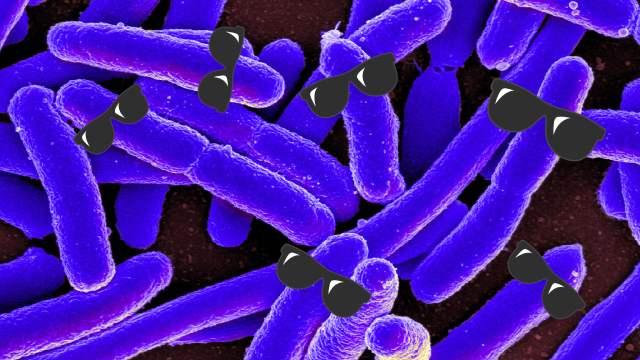Reading science news all day can be real grim. Animals are dying, the climate is changing, the nuke’s a coming, yadda yadda. But sometimes (in fact, often) scientists do something that’s just neat, important, and won’t keep you up at night — that is, if you’re cool with photosynthesising cyborg bacteria.
Image Source: NIAID/Gizmodo
Photosynthesis is a process by which plants use light from the sun to assist their turning carbon dioxide into other molecules. A team of scientists hopes to turbocharge bacteria to photosynthesise molecules on their own, molecules that can be turned into fuels or plastics.
The researchers essentially just introduced Moorella thermoacetica to a cadmium salt and amino acid, cysteine. The bacteria combine the sulphur atoms in the cysteine with the cadmium to create little light absorbers, cadmium sulfide. M. thermoacetica normally creates acetic acid from carbon dioxide through its own respiratory process. But the cadmium sulfide they made in the experiment allowed them to supercharge the acetic acid production process using energy harvested from the sunlight. The team presented their creations at the 254th National Meeting & Exposition of the American Chemical Society (ACS) this week.
Probably most importantly, the scientists report that these nanocrystals were more efficient than chlorophyll, the molecule plants usually use as their solar panels.
The results are obviously cool, but the researchers told the BBC that others are devising synthetic photosynthetic systems and their bacteria might not be the winning option. “There are so many different designs of these systems coming out and really we’ve only begun to explore the different ways we can combine chemistry and biology,” Kelsey Sakimoto at Harvard University told them.
Additionally, as these are conference results, Gizmodo did not have a chance to read a published paper or vet results with outside researchers, but we expect a paper will come out eventually.
So, how do you feel about a future where chemical or fuel manufacturing plants look like huge containers of bacteria sitting in the sun?
[Phys.org]
